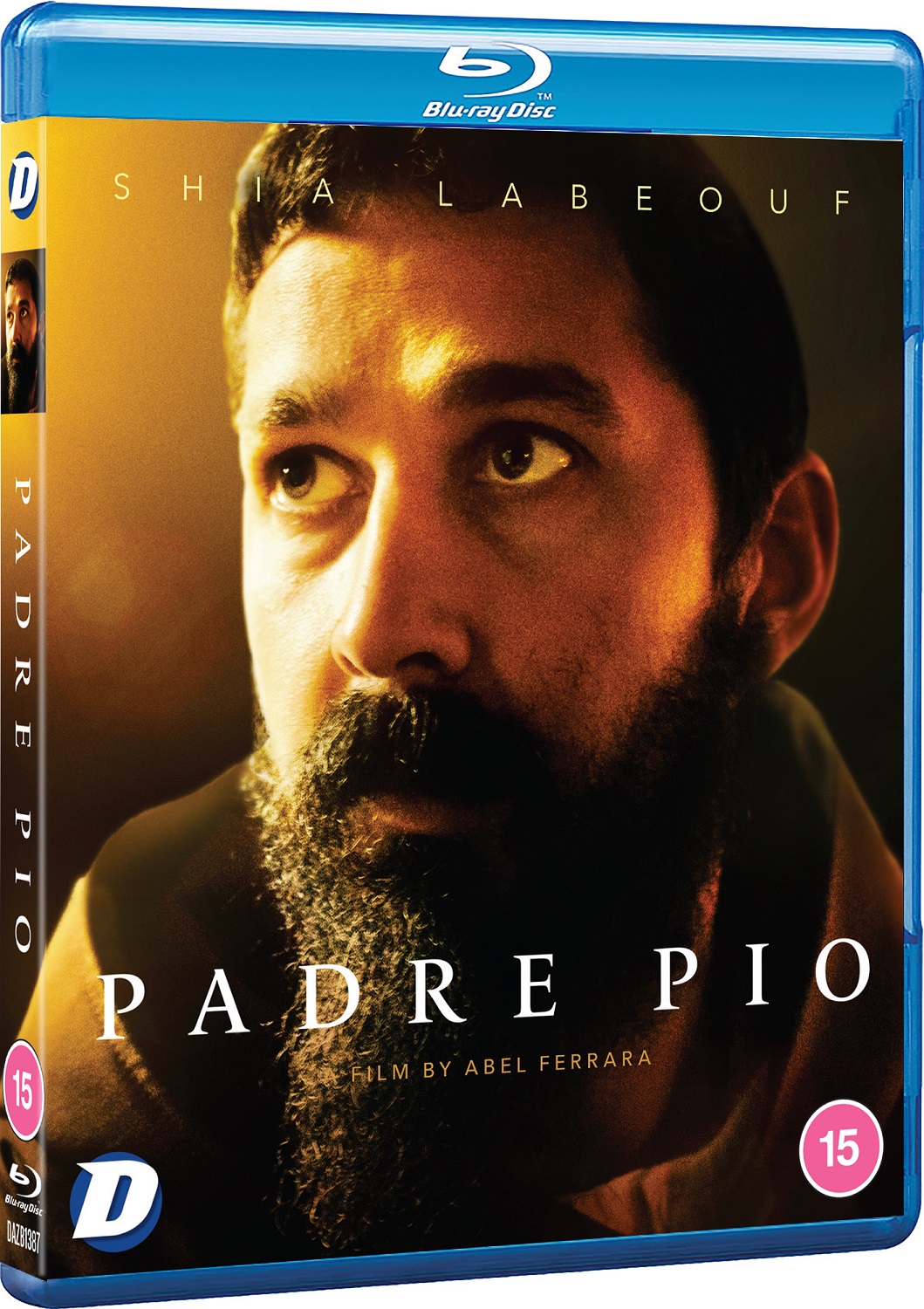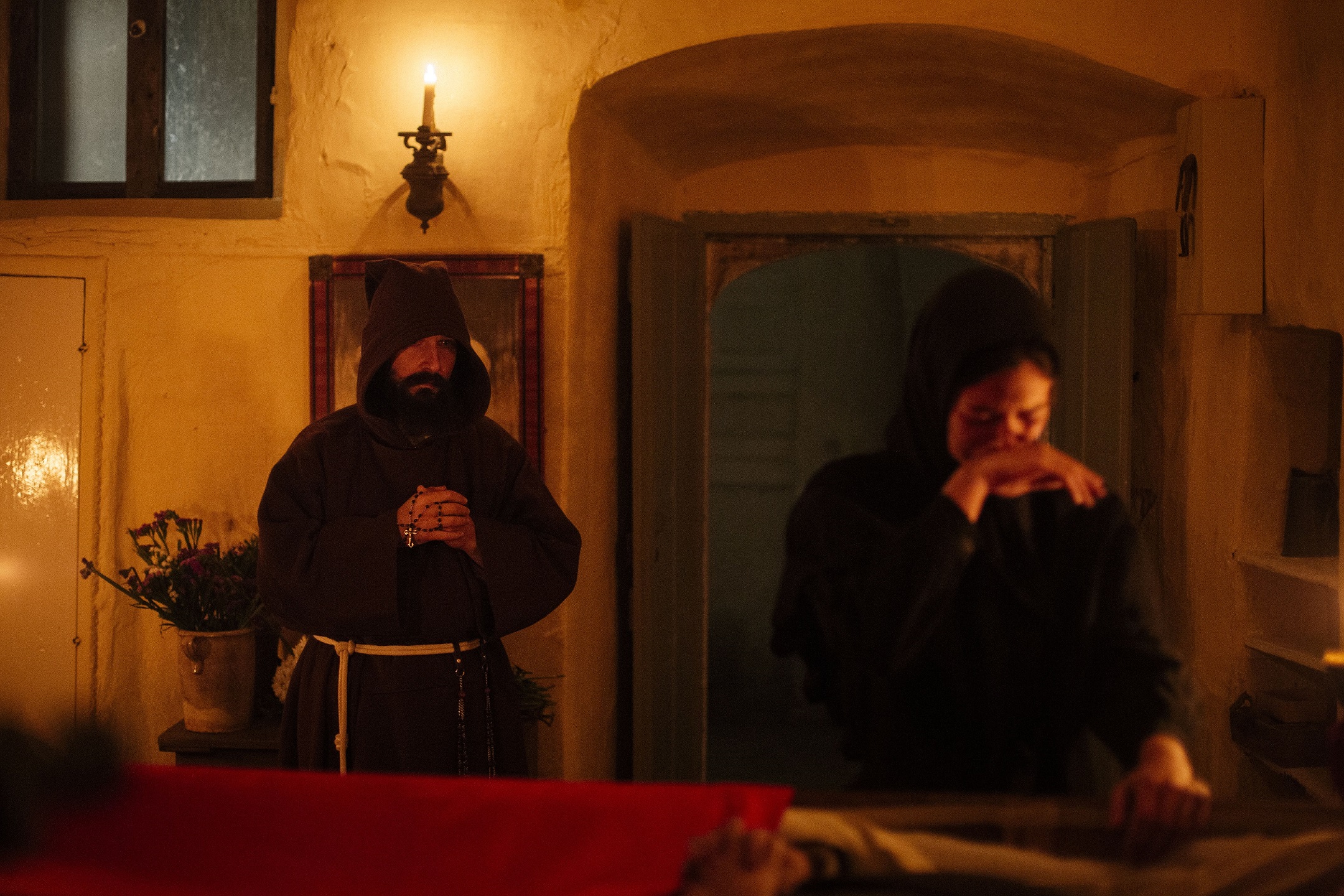Faith and damnation frequently collide in Abel Ferrara’s films, drawing fiery performances from often starry casts. The New York master who made The Driller Killer and Bad Lieutenant now lives in Rome and, like his Pasolini, Padre Pio is a political period film set in his adopted land.
With some chronological sleight of hand, Ferrara splices the life of the titular Franciscan priest, a mystic visionary eventually beatified for receiving the stigmata in 1918, and the October 14 1920 massacre of San Giovanni Rotondo, where 14 villagers protesting landowners’ overturning of their first free election’s socialist victory were cut down.
 As charismatic, spiritually riven Pio, Shia LaBeouf literally wrestles with the Devil in his convent cell, as Satan tortures him with his failings and tempts him in the guise of a naked woman. Bearded and barking with incendiary rage like Christ turning over the temple tables, Pio nevertheless remains feebly detached from the bloody tragedy unfolding in the town, a ghost-like observer, until the transcendent final scene which resulted in his sainthood.
As charismatic, spiritually riven Pio, Shia LaBeouf literally wrestles with the Devil in his convent cell, as Satan tortures him with his failings and tempts him in the guise of a naked woman. Bearded and barking with incendiary rage like Christ turning over the temple tables, Pio nevertheless remains feebly detached from the bloody tragedy unfolding in the town, a ghost-like observer, until the transcendent final scene which resulted in his sainthood.
LaBeouf is Ferrara’s kind of actor, as troubled as his roles. Like Keitel’s tortured cop heading down to Hell in Bad Lieutenant, or Gerard Depardieu’s bloated rapist refusing our judgement in Welcome to New York, he could be confronting his own demons alongside Pio’s. He embraced Catholicism while filming his unpaid role, which may be seen as a form of penance for FKA Twigs’ allegations of abuse during their relationship. He doesn’t yet, though, have the roiling depth of previous Ferrara conduits, still appearing callow and, like the director these days, only fitfully effectual. It’s the very charge the contemptuous Devil puts to him: “You’re no more than a whimsical child, crying for his mother.”
There are often gaps in Ferrara films, elisions like blackouts or failed grasps for the supernal, connective threads between and within scenes happening subconsciously if at all. Pio/LaBeouf’s spiritual quest exists in this murk, only reaching full electric life with Asia Argento’s appearance at confession, as a gaunt man with incestuous feelings for his daughter. “Shut the fuck up and say Christ the Lord!” the incensed priest tells his supplicant, hinting at the humour that flickers inside the director’s Beat self-regard. Pio’s trials occur in shadows and candle-glow. Down in the town, though, Ferrara, cinematographer Alessandro Abate and co-writer Maurizio Braucci find more solid ground. Here among Puglia’s bone-white rock, grey stone and snow, war veterans limp home or fail to return to anguished widows, revolutionaries preach change round campfires, kissing, pissing, and passing the Red Flag like sacrament, then are brutalised by horseback vigilantes. Blind Willie Johnson’s 1927 blues “Dark Was the Night, Cold Was the Ground” moans as an overworked, mustard gas-damaged fieldhand falls dead. The body of Christ given by Pio at confession and the open arms of his statue – liquidly alive for the priest – haunt scenes of exploitation, yet in the final terrible massacre, priests bless the authorities’ rifles, and altar boys form a corrupt cadre. A murdered woman falls with her own blood-streaked, stigmata-like hands, before Pio’s miracle.
Pio’s trials occur in shadows and candle-glow. Down in the town, though, Ferrara, cinematographer Alessandro Abate and co-writer Maurizio Braucci find more solid ground. Here among Puglia’s bone-white rock, grey stone and snow, war veterans limp home or fail to return to anguished widows, revolutionaries preach change round campfires, kissing, pissing, and passing the Red Flag like sacrament, then are brutalised by horseback vigilantes. Blind Willie Johnson’s 1927 blues “Dark Was the Night, Cold Was the Ground” moans as an overworked, mustard gas-damaged fieldhand falls dead. The body of Christ given by Pio at confession and the open arms of his statue – liquidly alive for the priest – haunt scenes of exploitation, yet in the final terrible massacre, priests bless the authorities’ rifles, and altar boys form a corrupt cadre. A murdered woman falls with her own blood-streaked, stigmata-like hands, before Pio’s miracle.
The old-fashioned decision to film in Italian-accented English is a distracting misstep. Otherwise, Ferrara falls into the earth and light of this landscape, revoking passing time as Pasolini would to depict lived truth from a century ago. Dedicated to the massacre’s victims and the people of Ukraine, there is a humility and very Italian political urgency here which lets his sometimes chaotic directorial reach grasp more than usual.















Add comment